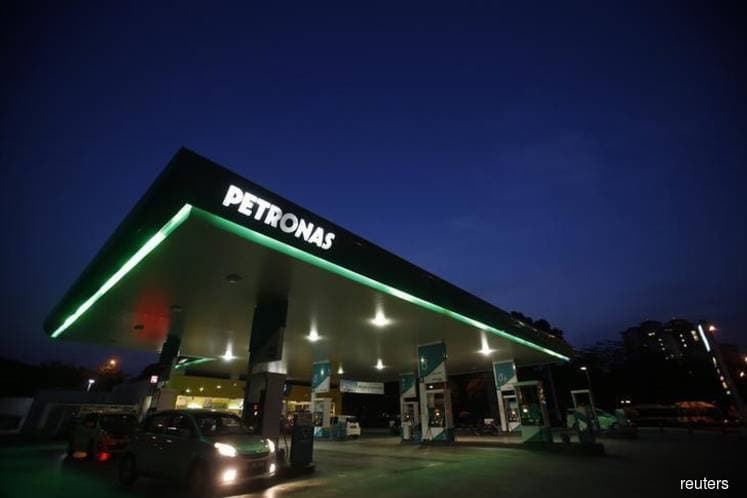
This article first appeared in The Edge Malaysia Weekly on August 5, 2019 - August 11, 2019
PETRONAS Dagangan Bhd’s share price fell to a one-year low last week. The decline in the FBM KLCI component stock was in tandem with the fall in the benchmark index, ahead of the second-quarter results reporting season this month.
The counter is now cheaper than most analysts’ target price since its commendable first-quarter results announcement in May. But has the dividend stock fallen enough to call for an upgrade or is there worse to come amid the persistent prospect of a saturated fuel retail market?
In a recent interview with The Edge TV, PetDag managing director and CEO Datuk Seri Syed Zainal Abidin Syed Mohamed Tahir assured investors that the fuel retailer would come out with an execution plan for its strategy to increase non-fuel revenue.
“We believe that if we want to up our game, we have to change our business model … [but] it is not a decision that we can make easily,” he said as he reeled off numerous possibilities, such as offering gourmet food at the stations or even a Petronas coffee line.
“Some decisions will be made in the future [for] services [that] will be offered throughout the network … [but] it is not one-size-fits-all.”
In the meantime, PetDag has not been sitting still. It has been hard at work, improving its dealers’ productivity, revamping existing stations and choosing the right partners at the right locations, such as fast-food chains KFC and McDonald’s as well as Tealive, to name but a few.
Some analysts expect sales to be healthy, considering that some of the upgrading works were completed in FY2018.
PetDag’s commendable performance in the first quarter ended March 31, 2019 (1QFY2019), may not be an accurate gauge as the company had been significantly affected by the changes in the market environment.
Quarter on quarter, its net profit rose more than sixfold to RM291.2 million on Mean of Platts Singapore (MOPS) benchmark price recovery, although revenue declined 10% or over RM800 million amid lower average selling prices for the company’s fuel products.
The 62% jump in its cash pile to RM3.5 billion in 1Q — a result of two quarters of subsidy collection from the government — may indicate a generous dividend payout. Note that the FY2018 dividend of 70 sen represents a yield of around 3% against last Thursday’s closing price of RM23.66.
Analysts expect dividend per share to average 77.6 sen in FY2019 or an expected yield of 3.3%.
Petron (M) Refining & Marketing Bhd has a yield of 3.36% while Boustead Holdings Bhd, which has BHP under its roof, has a 4% yield, although Bloomberg data underlines an indicated yield of 2%.
“Over the last two years, our capex has been RM450 million to RM500 million per year,” said Syed Zainal, who expects the trend to continue until end-2020 before tapering off to its typical capex pattern of RM250 million to RM300 million annually.
The group maintains its trajectory of 10 to 15 new stations each year with room for growth in the east coast and southern region of Peninsular Malaysia as well as Sabah and Sarawak, he added.
The other area with capex utilisation is PetDag’s ongoing digital push. Syed Zainal is largely optimistic of the response to its e-wallet app, Setel, and mobile fuelling service, ROVR.
“I believe this kind of investment requires a long-haul view. We have done our numbers, we are quite sure that when we finish our asset refresh [and] when there is full market penetration [for the digital applications], that will bring income stream to the company,” he said, adding that he expects the rollout of the apps to be completed by 2021.
ROVR is currently being offered as a business-to-business service with over one million litres delivered so far, according to its official website. A retail offering is in the works, although no exact time frame has been given.
Setel, currently available at around 300 stations in the Klang Valley, has garnered over 100,000 downloads. Shell, too, has a similar mobile app, although its marketing has not been as aggressive, while Petron’s app may have room for improvements.
All said, it remains to be seen whether PetDag’s efforts to create its own ecosystem — with its unique Mesra loyalty cards and Setel, among others — can put the group ahead of its competitors.
With each retailer partnering different third-party e-wallets (Petronas with Vcash, Shell with Boost, Petron with WeChat), there is — at least for now — little incentive for customers to opt out of e-wallets that are accepted far beyond their fuel retailer of choice.
Analysts may be waiting for the second-quarter results before revising the outlook for the company. Of the 11 analysts covering PetDag, nine have “hold” and two “buy” calls on the counter with target prices ranging from RM24.65 to RM29.40 for an average of RM26.42.
The counter closed at RM23.66 last Thursday — representing a 10.72% decline since the start of the year compared with a 3.05% drop in the FBM KLCI in the same period — giving the group a market capitalisation of RM23.505 billion.
Scan the QR code to watch The Edge TV’s interview with Syed Zainal
Save by subscribing to us for your print and/or digital copy.
P/S: The Edge is also available on Apple's AppStore and Androids' Google Play.